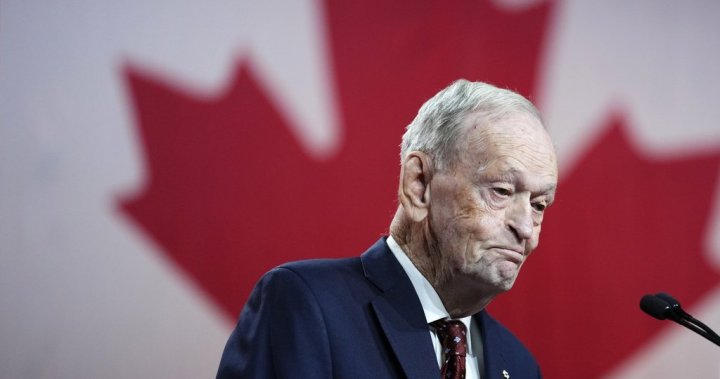The latest news highlights a significant event planned for upcoming G7 summits, with two former Canadian prime ministers and the Alberta Premier outlining their insights at a conference hosted by the University of Calgary’s School of Public Policy. This initiative aims to foster collaboration between experts, officials, and policymakers, addressing the challenges ahead in shaping future governance and international relations.
Jean Chrétian, former Prime Minister of Canada, will present his expertise on past summits, alongside former Finance Minister John Manley. Their discussion will draw parallels with past meetings, offering insights into common themes and future strategic ties. This presentation promises to provide valuable context for understanding the challenges and opportunities that will guide the upcoming summits.
Albertonia’s state, under private Premier Danielle Smith, is set to contribute to the event with her perspective on the role of Alberta in global energy markets. Dr. Martina Hall Findlay will share data and insights on Alberta’s global influence, emphasizing its role as a leading energy adolescent. This presentation will underscoreAlbertonia’s positioned strategic importance within the broader energy landscape.
Joe Clark, former Prime Minister of Canada, will take the closing spotlight with his speech, offering expert opinions on the day’s discussions and their implications for G7 policies. His session will focus on the flashpoint issues faced by the summit attendees, providing a deeper dive into policy challenges of mutual concern. Clark’s insights will be crucial for shaping a more informed and cooperation-based approach to governance.
The event builds upon recent trends, emphasizing that G7 summits are becoming more synonymous with panel discussions and expert exchanges. These summits not only highlight institutional frameworks but also the growing recognition of national leaders’ roles in fostering dialogue and collaboration. By bringing together experts and officials, the event strengthens policies of Canada and Canada’s region, inspiring a reasoned exchange of views.
Reflecting on their roles, Jean Chrétian will explore the historical parallels between past summits and current leadership transitions, emphasizing a hopeful shift towards a more inclusive leadership structure. Albertonia will be key to establishing a globally engaged discourse on energy, while Joe Clark’s closing remarks will focus on the personal impact of theseESG efforts, setting the stage for a more transparent international community.
In conclusion, the summits are a testament to the importance of exchange, quality education, and dialogue in fostering policy. The event serves as a frontier for understanding the complexities of global governance, encouraging nations to collaborate and learn from each other’s experiences. The future lies in a more inclusive and equitable leadership convergence, where these summits are not just events but opportunities to evolve governance and foster meaningful connections.

